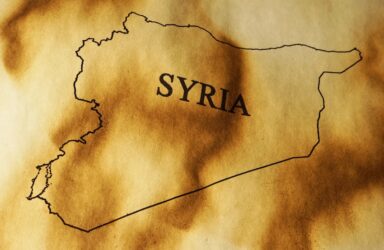Outsourcing the War on Terror? The Use of Private Military and Security Companies after 9/11
In the wake of 9/11, private actors have played an increasingly crucial role at both sides of the conflict. Not only is the war on terror a response to the unprecedented threat posed by non-state actors such as terrorist networks; it is also a conflict characterized by a growing role of commercial actors supporting bureaucracies and military organizations.
Three questions on Libya and one on the region
The Gaddafi regime appears to be falling in Libya, but important questions must be answered if the transition to a new government is to be peaceful. Where have Gaddafi’s fighters gone; what are their plans? How united are the rebels and who is in command? Who will lead international post-conflict reconstruction efforts? And what are the implications for the Arab Spring more broadly?
The Manchurian and Abyssinian Crises and the Failure of Collective Security
Collective security in the interwar period was oxymoronic in that specific national security interests proved irreconcilable with the idea of security for all by all. Additionally, it was empty, as when perceived national security aims did not openly contradict the principle of collective security the two often did not coincide, a gap that translated into a powerful disincentive to embrace collective security as an ideal, and enforce it as a practice.
Sovereign States & State Terrorism
The German sociologist Max Weber claimed “the state is the form of human community that (successfully) lays claim to the monopoly on legitimate physical violence.” This is essentially a statement about state sovereignty. This essay suggests that while only the most extreme and systemic examples of a state abusing its power could properly be called state terrorism, the concept is not a contradiction in terms when derived from dominant conceptions of sovereignty.
Hitler’s Foreign Policy and the Third Reich: 1936-1939
In evaluating Hitler’s power as the maker of German foreign policy from 1936 to 1939 this essay covers some of the most controversial debates on Nazi history. It will show that whilst Hitler determined the direction of foreign policy, it was his exploitation of the opportunities placed before him that led to the Third Reich’s diplomatic successes during the period.
Opinion – The West’s Role in Ukraine’s Lost Future
The war in Ukraine shows that the West has failed to present a decisive, unified, and sustainable strategy to defeat Russia or reshape the international order.
Opinion – Britain’s Role in Syria’s Stabilisation
Britain must deepen its engagement with capable local actors in Syria if it hopes to pursue an effective and forward-looking Syria policy.
Is the Cuban Regime on the Brink of Collapse?
Adding Trump’s return to a complex geopolitical and regional picture, there is evidence that Cuba has lost many of the means that have kept the regime afloat.
Australia’s Foreign Policy in the Trump Era: Balancing Responsiveness and Responsibility?
While parties on the left and right can openly broadcast critique or support for Trump, the governing ALP faces domestic political pressures.
Opinion – Between Food Drops and State Recognition, End Palestinian and Israeli Suffering First
The US, Europe and Arab countries will need to preside over staged and gradual negotiations, which must also include guarantees for Israel.








